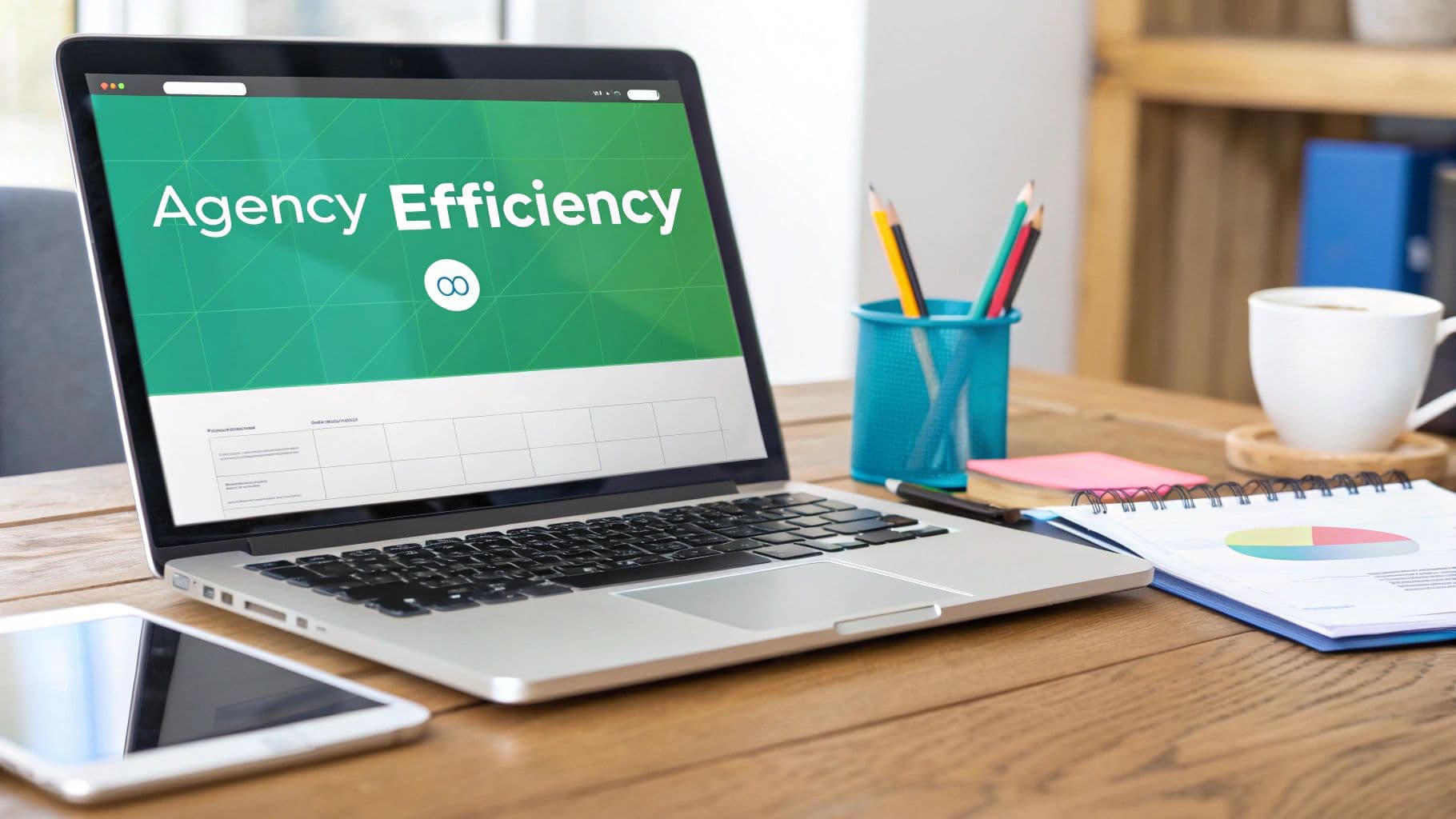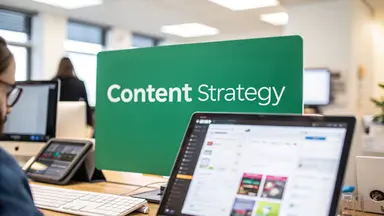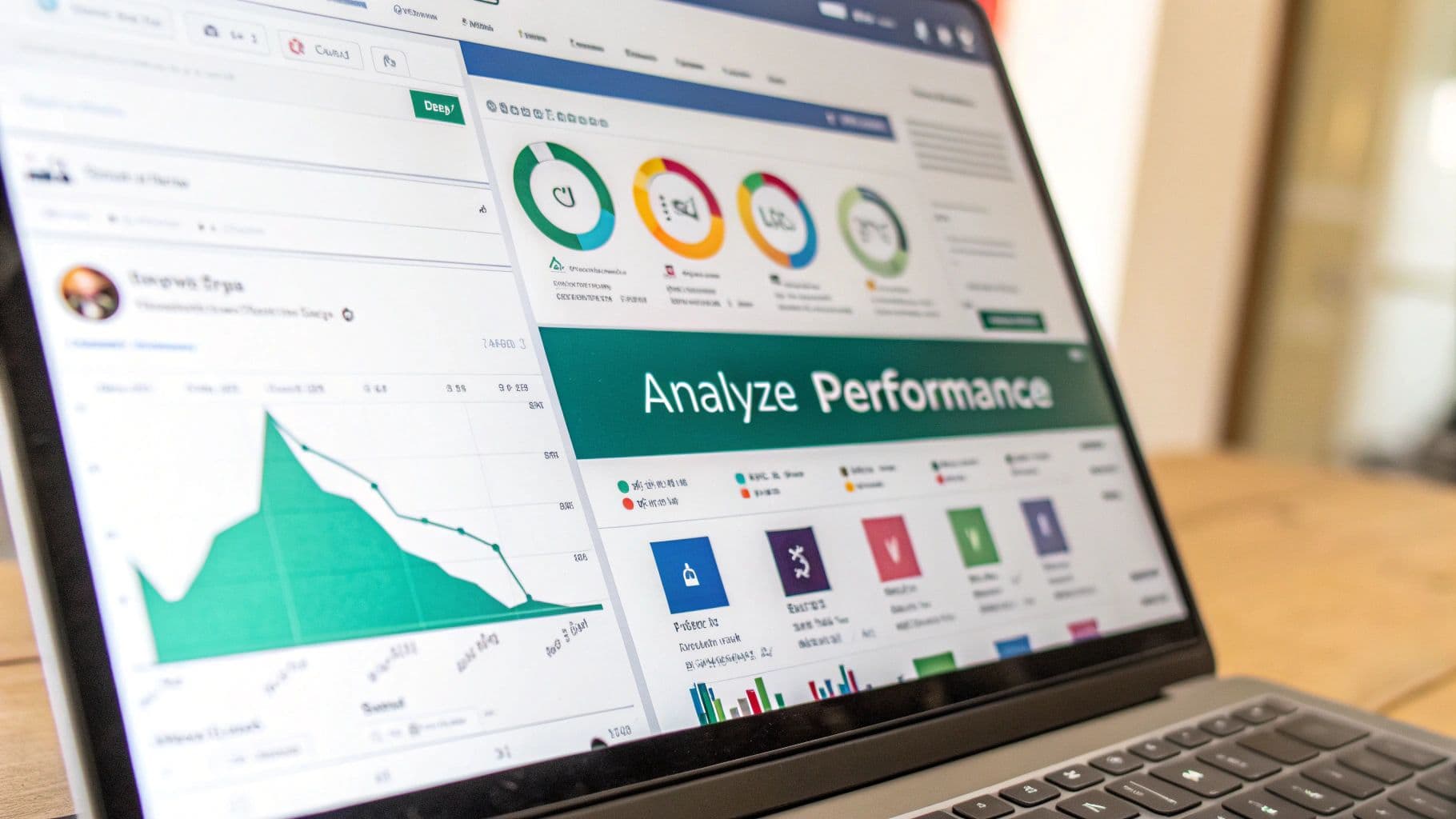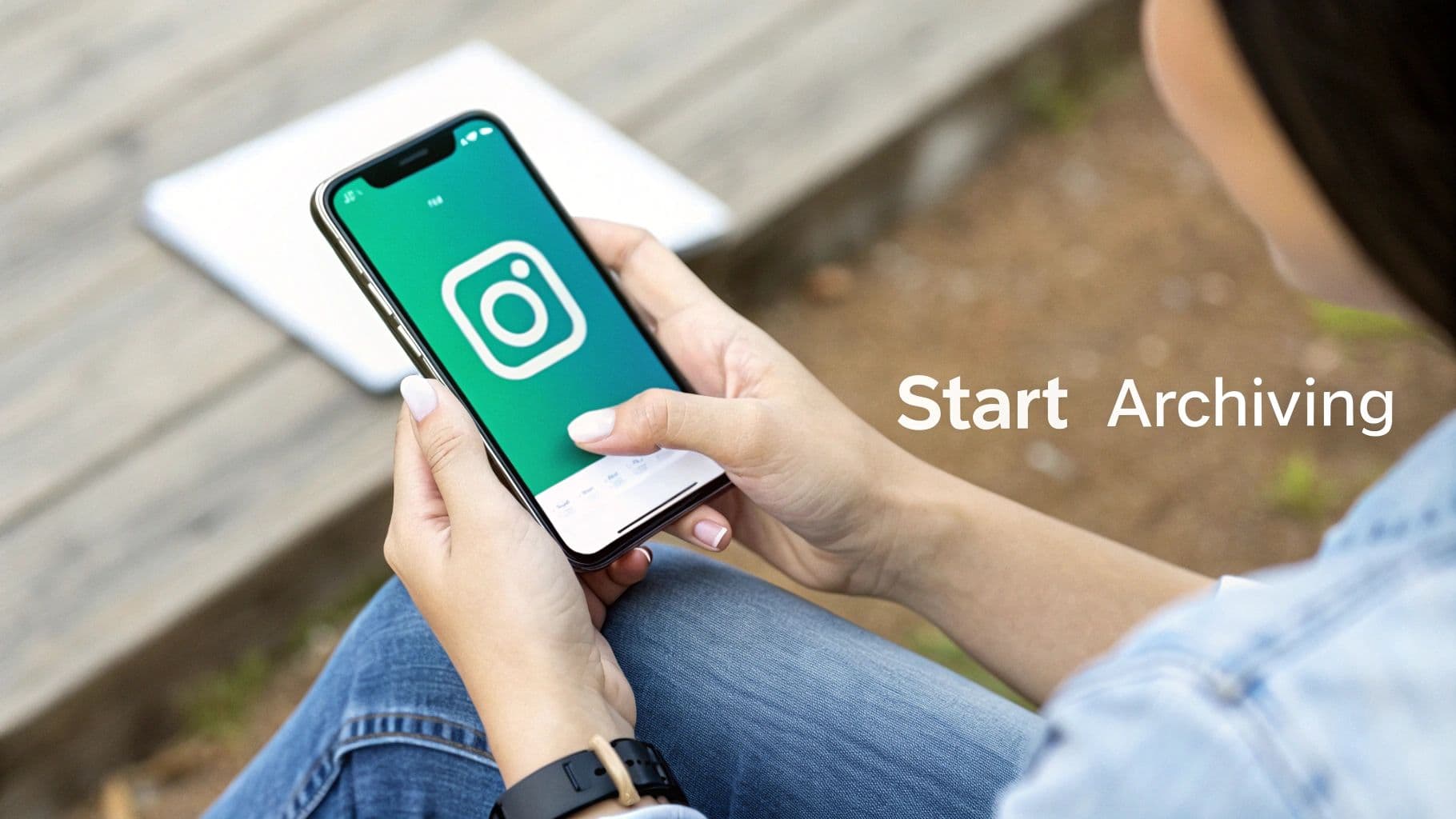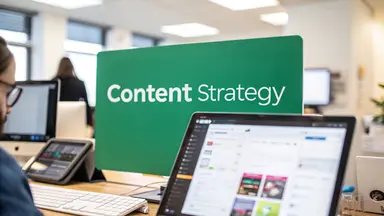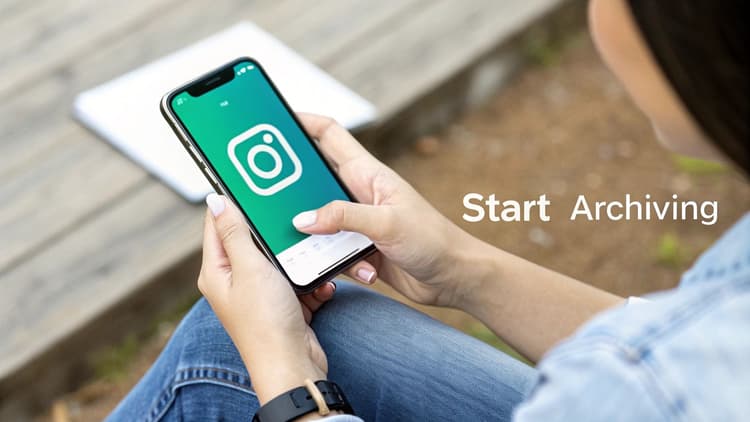The Evolution of Social Media Agency Tools
From Scheduling to Strategy
Managing multiple social platforms requires serious coordination. Posting across Instagram, Facebook, Twitter, and TikTok means juggling different content formats, audiences, and posting schedules. This pushed tools to evolve from simple scheduling into full-featured management hubs.
The need for data-driven decisions also shaped these tools. Agencies now rely on detailed analytics to understand their audience, measure campaign success, and generate reports that prove ROI. The numbers show why this matters - social media reaches 5.22 billion people globally (63.8% of the population). 70% of businesses use social media marketing, with 80% running paid social ads. For the full picture, check out more stats here: Social Media Statistics.
The Rise of Integrated Ecosystems
Today's leading agencies use tools that work together as one system. Different platforms share data and automate workflows between them. This approach helps teams stay efficient and connected. Rather than jumping between disconnected tools, everything flows through one central hub. Learn more about scaling agency operations here: How to Master Agency Growth.
Impact on Productivity and Client Outcomes
These connected tools free up agency teams to focus on strategy and creativity. Instead of manual busy work, they can spend time on campaign planning, client communication, and optimizing results. Clients get better campaigns, clearer reporting, and stronger outcomes. The tools provide an easy way to show the real impact of social media efforts with concrete metrics and KPIs.
Automation handles the tedious tasks while humans focus on high-value creative and strategic work. This lets agencies deliver consistently great results for clients in a competitive market. The tools evolve as client needs change, helping agencies stay ahead of the curve.
Artificial Intelligence in Social Media Management
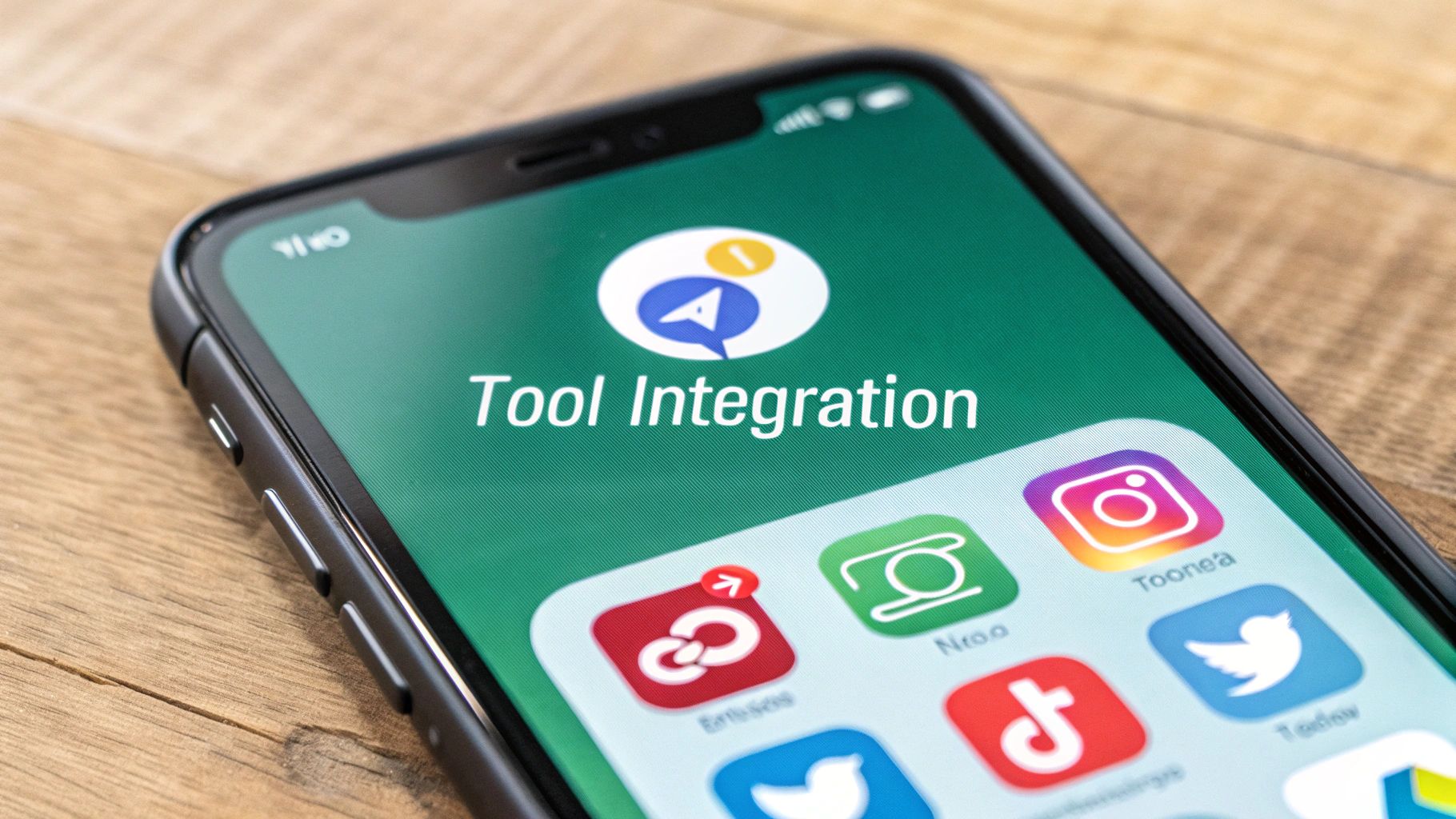
Social media agencies are experiencing major shifts in how they operate thanks to artificial intelligence tools. Beyond the hype, AI has become a practical necessity that helps teams work smarter and achieve better results for their clients. From content creation to audience insights, AI is reshaping core agency processes.
AI-Powered Content Creation
Content creation has seen some of the biggest benefits from AI adoption. Modern AI tools can help generate social media captions, translate content for global audiences, and even create custom images. This means agencies can produce more high-quality content while their creative teams focus on strategy and maintaining brand voice. Social media managers can now spend less time on repetitive tasks and more on creative direction.
Optimizing Scheduling and Performance
Smart scheduling powered by AI takes the guesswork out of social media timing. AI tools can pinpoint the best times to post content for maximum reach by analyzing engagement patterns and audience behavior. Some platforms can even predict a post's likely performance before it goes live, allowing teams to fine-tune content based on data rather than hunches.
Balancing Automation with Human Creativity
The role of AI in social media continues to grow. According to Hootsuite, 69% of marketers see AI creating new job opportunities rather than replacing existing roles. While AI excels at tasks like caption writing and translation, human creativity remains essential. The most successful agencies find ways to let AI handle repetitive work while keeping strategy and creative direction in human hands.
Implementing AI Tools Effectively
Making the most of AI requires a thoughtful approach. Teams need clear guidelines for using AI-generated content and strong quality control processes to maintain brand standards. Rather than viewing AI as replacing human expertise, successful agencies treat it as a powerful assistant that enhances their team's capabilities. This balanced strategy allows agencies to gain AI's benefits while preserving the authentic human connection that social media demands.
Essential Analytics and Reporting Tools
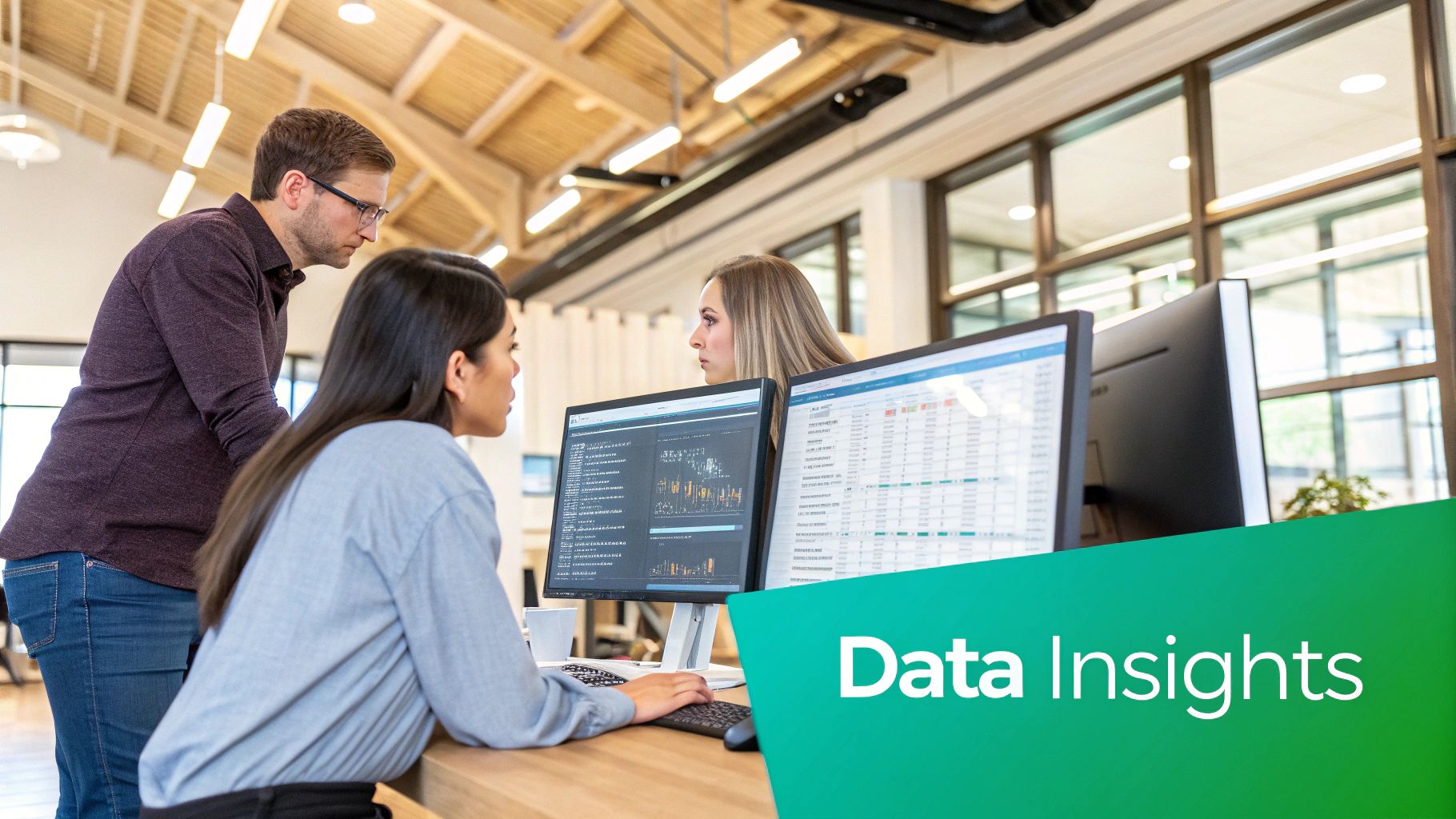
Good analytics and reporting are essential for social media agencies to show clear value to clients and improve their strategies. The focus needs to be on meaningful data that connects directly to business goals, not just surface-level engagement numbers.
Choosing the Right Analytics Platform
Finding the best analytics tools takes careful consideration since each platform has different strengths. Some tools excel at analyzing multiple social networks together, while others provide deep insights into specific platforms like Instagram or Facebook. When selecting tools, think about which social networks you manage, what level of data analysis you need, and which reporting capabilities matter most. For more guidance, check out our detailed tool reviews and recommendations.
Building Custom Dashboards for Client Reporting
Custom dashboards make it simple to display the most relevant data to each client. A well-designed dashboard highlights key performance indicators at a glance, making reports easier to understand and saving time on analysis.
Key Metrics to Track and Report
While specific metrics vary by client goals, these data points provide valuable insights for most campaigns:
Reach and Impressions: Total audience exposure to content
Engagement: Direct interactions like likes, comments and shares
Website Traffic: Social media referrals to client websites
Conversions: Lead generation, sales, and other target actions
Sentiment Analysis: Tracking positive vs negative brand mentions
Looking at these metrics together shows how campaigns perform and guide strategy adjustments.
Automating Data Collection and Reporting
Using automated reporting saves hours of manual work and reduces errors. Many tools can automatically generate and send client reports on a set schedule. This frees up agency teams to focus on analyzing trends and refining strategies rather than compiling data.
Combining Data Sources for a Holistic View
Social media results make more sense when viewed alongside other business data. Bringing together social analytics, website data, CRM info, and offline sales shows the complete impact of campaigns. This full picture helps prove ROI and shows which social efforts drive real business outcomes most effectively. The combined view also makes it easier to properly credit different channels for their role in conversions.
Content Creation and Management Platforms
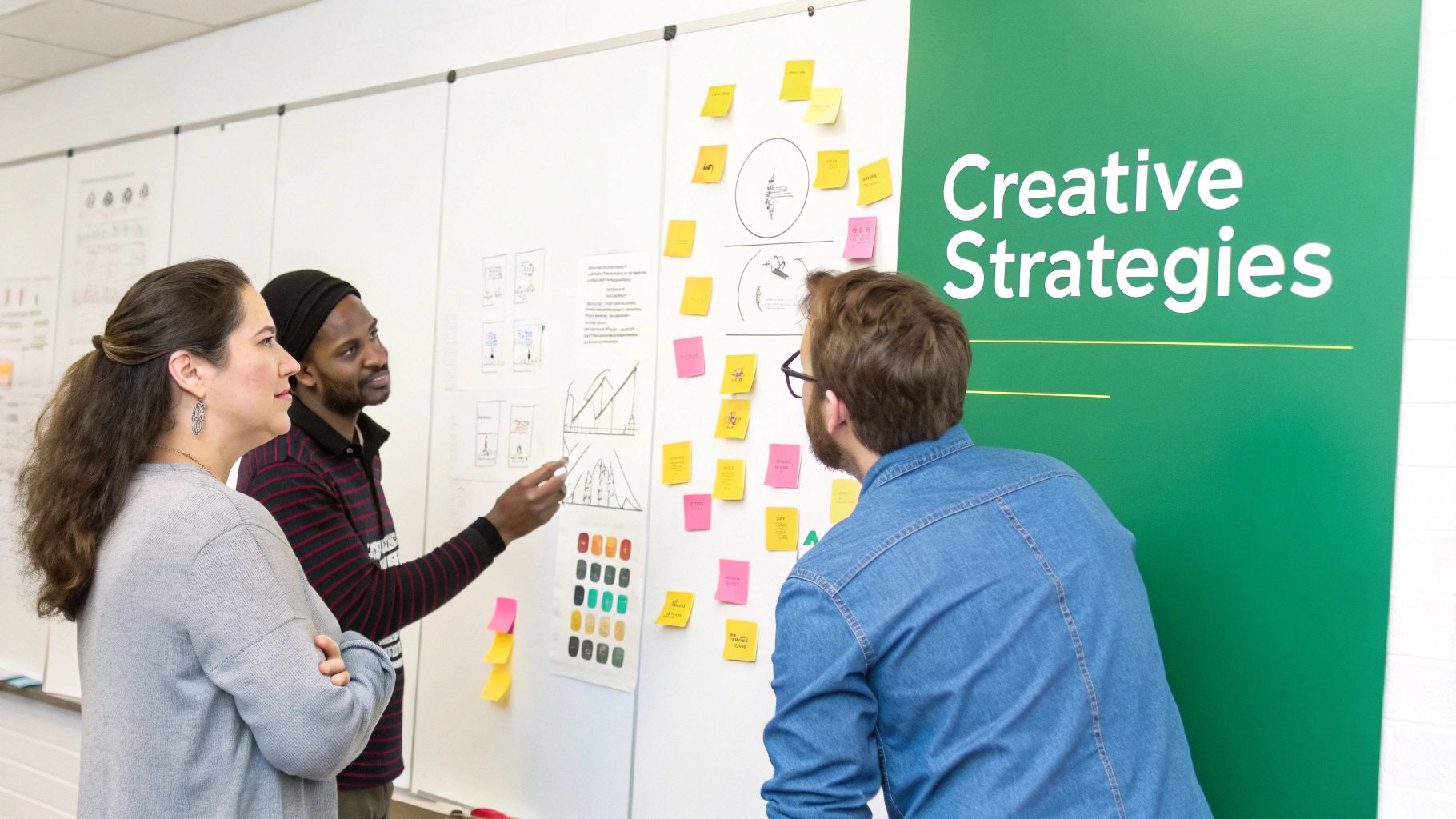
Great social media campaigns need great content to succeed. Social media agencies rely on content creation and management platforms to keep their work organized and flowing smoothly. These tools do much more than just schedule posts - they help manage content from start to finish.
Streamlining the Content Pipeline
The best social media agencies use tools that connect every content step - from the first idea to hitting publish. Having everything in one place means fewer mistakes and faster work. For instance, teams can collaborate on drafts, get client sign-off, and schedule posts all within a single platform.
Managing Multiple Client Voices
When agencies handle content for several clients, keeping each brand's unique voice consistent is key. Content platforms make this easier by letting teams set up separate client profiles and brand guidelines for each account. This also helps track how different campaigns perform and show results to clients.
Smart Automation That Maintains Quality
While automation helps save time, the human touch still matters most. Good platforms find the right balance - they automate routine tasks like scheduling and cross-posting while giving teams space to be creative. This keeps content authentic while working efficiently. You might be interested in: How to master hashtag research.
Building a Content Calendar that Works
A clear content calendar keeps everything on track. Most platforms include calendar features that help teams visualize upcoming posts, plan campaigns, and avoid scheduling conflicts. They provide one central spot where both teams and clients can review content plans and share feedback.
Practical Examples of Successful Content Workflows
Many agencies have seen real improvements after setting up structured content processes. Some have been able to create twice as much content while getting better engagement from their audience. This comes from fine-tuning their production process and using their tools effectively.
Choosing the Right Content Creation Platform
Finding the best platform depends on what each agency needs. Consider how many clients you manage, what types of content you create, and how much collaboration your team needs. The platform should fit naturally into your current workflow and help your team do better work.
Social Listening and Engagement Tools
Social listening tools help agencies understand their audience, monitor trends, and manage brand reputation in real-time. With these tools, agencies can actively participate in social media conversations instead of just passively monitoring them.
Identifying Trends and Managing Crises
Monitoring social conversations helps spot emerging trends early. By tracking keywords, hashtags, and brand mentions, agencies can understand what topics resonate with their target audiences. This data helps create content that aligns with current discussions. For instance, if negative sentiment suddenly increases around a brand, social listening tools send immediate alerts so agencies can quickly address issues before they escalate.
Competitor Analysis and Audience Insights
Beyond monitoring your brand, social listening reveals valuable insights about competitors. You can track their mentions, engagement levels, and audience reactions to understand their strengths and weaknesses. This information helps refine client strategies and campaigns. The tools also provide detailed data about audience demographics and behaviors, enabling more targeted and personalized content.
Optimizing Real-Time Engagement
Quick responses to comments, questions, and concerns are essential for building relationships. Social listening tools ensure agencies never miss important interactions by monitoring all social channels for mentions and messages. This consistent engagement shows audiences that brands are attentive and responsive, which can turn simple interactions into meaningful customer service moments.
Setting Up Comprehensive Monitoring Systems
The foundation of effective social listening is choosing the right keywords and hashtags to track based on the client's industry, brand identity, and target audience. However, collecting data isn't enough - agencies must filter out irrelevant noise and focus on meaningful insights. Most platforms include advanced filtering options to highlight the most important conversations.
Turning Social Data Into Actionable Strategies
The real value of social listening comes from using insights to guide decisions. Analyzing the collected data helps identify content opportunities, optimize campaigns, and improve audience engagement. For example, trending topics can inspire new blog posts or social updates. Understanding audience sentiment helps refine messaging for specific customer segments. This context turns raw data into practical strategies that deliver measurable results.
Building Your Ultimate Agency Tool Stack
Every successful social media agency needs a robust set of tools that work smoothly together. Just like a finely tuned engine, each tool serves an essential purpose while integrating seamlessly with the others to drive performance. The key is selecting tools that are not only powerful on their own but also combine effectively into one efficient system.
Key Considerations for Tool Selection
When choosing social media management tools for your agency, focus on these essential factors:
Core Features: Does the tool provide the specific capabilities you need - scheduling posts, analyzing performance, monitoring conversations, and generating reports?
Tool Integration: Will it connect smoothly with your existing platforms to minimize manual work and create efficient workflows?
Room for Growth: Can the tool expand alongside your agency as you add more clients and take on new projects?
Ease of Use: Is the interface simple enough for your team to quickly learn and start using effectively?
Cost vs Value: Does the price make sense for your budget and expected return on investment?
Building a Tool Stack for Different Agency Sizes
The ideal combination of tools varies based on your agency's size and focus:
Small Agencies: Best served by affordable all-in-one platforms that handle the basics of scheduling, analytics, and engagement in one place
Mid-size agencies: Often need specialized tools for content creation, social listening, and detailed analytics, managed through a central platform
Large Agencies: Typically require robust enterprise solutions with advanced features for team collaboration, customized reporting, and complex campaign management
Examples of Effective Tool Combinations
Here's a quick overview of tool combinations that work well together:
Small Size: Basic Management e.g Buffer, Hootsuite, Later
Medium Size: Specialized Functions e.g SproutSocial, Agorapulse, Brandwatch
Large Size: Enterprise Solutions e.g Salesforce Social Studio, Sprinklr
Implementation and Team Adoption
To successfully roll out new tools across your agency:
Start Small: Test with a core group first to work out any issues before expanding to the full team
Provide Support: Offer thorough training and ongoing help to ensure everyone feels confident using the tools
Get Feedback: Actively ask for input from your team to improve how you use the tools and optimize workflows
Scaling Your Tool Stack for Growth
As your agency expands, regularly review your tools to ensure they still meet your needs:
Find Automation Options: Look for tasks that could be automated to save time and resources
Add Platform Support: Make sure your tools can handle any new social networks you expand into
Manage Growing Data: Put systems in place to effectively handle increasing amounts of data
By carefully choosing, implementing, and growing your social media management tools, you'll build a powerful system that helps your agency thrive and deliver great results for clients.
Ready to take your social media management to the next level? See how Gainsty, the AI-powered social assistant, can help you grow your Instagram following and boost engagement. Start growing your Instagram presence with Gainsty today!
